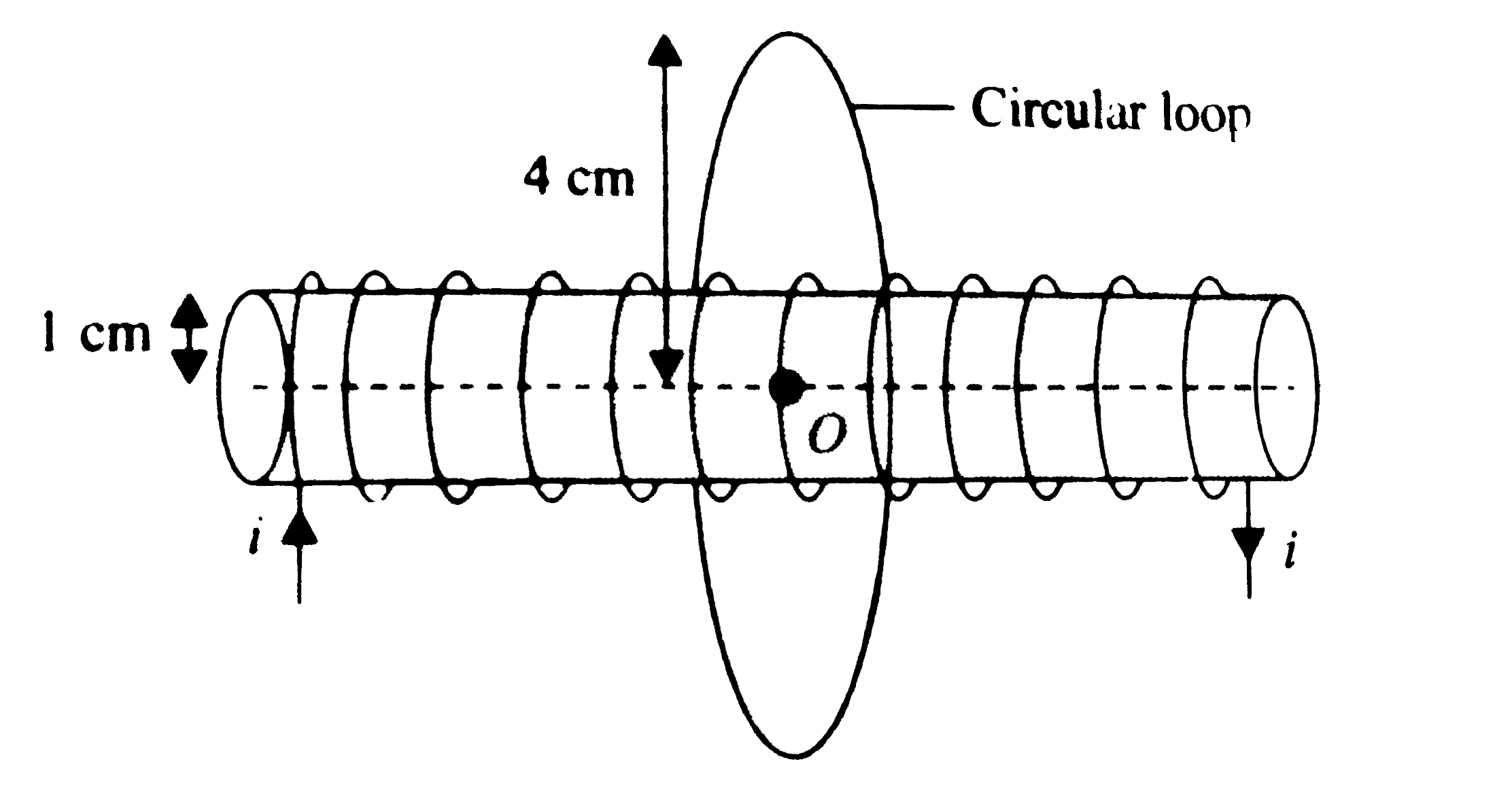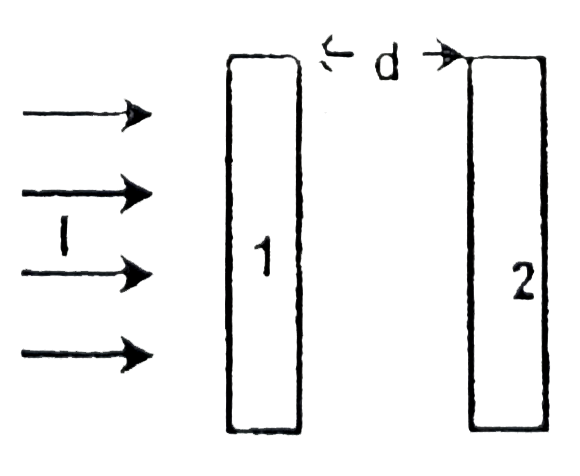The anode voltage of a photocell is kept fixed. The wavelength λ of the light falling on the cathode is gradually changed. The plate current I of the photocell varies as follows:
_E01_228_O01.png)
_E01_228_O02.png)
_E01_228_O03.png)
_E01_228_O04.png)
The correct Answer is:B
With the increase in wavelength energy of the photon decreases. Therefore the KE of the electron coming out from the cathode also decreases. Due to which there will be a small decrease in plate current and once λ becomes more than threshold wavelength electron will not come out from the cathode and hence current will become zero.
Topper's Solved these Questions
- SIMPLE HARMONIC MOTIONBOOK - ALLENCHAPTER - SIMPLE HARMONIC MOTIONEXERCISE - Exercise-05 [A]
39 Videos
- SIMPLE HARMONIC MOTIONBOOK - ALLENCHAPTER - SIMPLE HARMONIC MOTIONEXERCISE - Exercise-05 [B]
12 Videos
- SIMPLE HARMONIC MOTIONBOOK - ALLENCHAPTER - SIMPLE HARMONIC MOTIONEXERCISE - Exercise-04 [A]
20 Videos
- RACEBOOK - ALLENCHAPTER - RACEEXERCISE - Basic Maths (Wave Motion & Dopplers Effect) (Stationary waves & doppler effect, beats)
24 Videos
- TEST PAPERBOOK - ALLENCHAPTER - TEST PAPEREXERCISE - PHYSICS
4 Videos
Similar Questions
A long solenoid having n = 200 turns per metre has a circular cross-section of radius a1=1cm. A circular conducting loop of radius a2=4cm and resistance R=5(Ω) encircles the solenoid such that the centre of circular loop coincides with the midpoint of the axial line of the solenoid and they have the same axis as shown in Fig.

A current 't' in the solenoid results in magnetic field along its axis with magnitude B=(μ)ni at points well inside the solenoid on its axis. We can neglect the insignificant field outside the solenoid. This results in a magnetic flux (ϕ)B through the circular loop. If the current in the winding of solenoid is changed, it will also change the magnetic field B=(μ)0ni and hence also the magnetic flux through the circular loop. Obvisouly, it will result in an induced emf or induced electric field in the circular loop and an induced current will appear in the loop. Let current in the winding of solenoid be reduced at a rate of 75A/sec.
When the current in the solenoid becomes zero so that external magnetic field for the loop stops changing, current in the loop will follow a differenctial equation given by [You may use an approximation that field at all points in the area of loop is the same as at the centre
View SolutionThe anode vollage of a photocell is kept fixed . The wavelength λof the light falling on the cathode varies as follows
View SolutionFind the thickness of a plate which will produce a change in optical path equal to half the wavelength λ of the light passing through it normally. The refractive index of the plate is μ.
View Solution
In a photoelectric effect experiment , the maximum kinetic energy of the ejected photoelectrons is measured for various wavelength of the incident light. Figure shows a graph of this maximum kinetic energy Kmax as a function of the wavelength λ of the light falling on the surface of the metal. Which of the following statement/i is/ are correct?
View SolutionA vacuum photocell consists of a central cathode and an anode. The internal surface is silver of work function 4.5 eV. The contact potential difference between the electrodes equals to 0.6 V. The photocell is illuminated by light of wavelength 2.3×10−7m.
a. What retrading potential difference should be applied between electrodes of the photocell for the photocurrent to drop to zero?
b. If a retarding potential of 1V is applied between electrodes at what limiting wavelength λ of light incident on the cathode will on the cathode will the photoelectric effect begin?
View SolutionTwo identical metal plates show photoelectric effect. Light of wavelength λA falls on plate A and λB fall on plate B lamaA=2λB, The maximum KE of the photoelectrons are KA and KB, respectively, Which one of the following is true?
View SolutionThe graph between intensity of light falling on a metallic plate (l) with the current (i) generated is
View SolutionElectrons are emitted from the cathode of a photocell of negligible work function, when photons of wavelength λ are incident on it. Derive the expression for the de Broglie wavelength of the electrons emitted in terms of the wavelength of the incident light
View SolutionLight from a hydrogen tube is incident on the cathode of a photoelectric cell the work function of the cathode surface is 4.2eV. In order to reduce the photo - current to zero the voltage of the anode relative to the cathode must be made
View SolutionTwo parallel large metal plates, each of area A are piaced at a distance d apart. Light of intensity I and wavelength λ falls on the plate 1 which is photosensitive. The efficiency of photoelectron emission is 100%. The photoelectrons are immediately swept away from plate 1 in such a way that the plate 2 remains neutral. Find the potential difference between the two plates at any time t, if plate 1 is neutral initially.

View Solution
